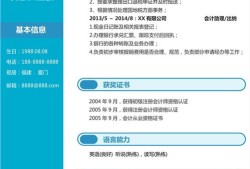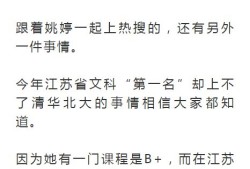访谈对话财经怎么说英语(财经访谈拼音)
- 财经资讯
- 2025-07-21
- 2
"Breaking Down the Language of Finance: How to Conduct a Successful Interview Dialogue in English"
In the world of finance, effective communication is key to understanding complex concepts and making informed decisions. Whether you are a professional in the industry or someone looking to break into the field, being able to conduct a successful interview dialogue in English is a valuable skill. This article will guide you through the essentials of finance terminology in English and provide tips on how to navigate a conversation with confidence.
Understanding Finance Terminology
The first step in conducting a successful interview dialogue in English is to familiarize yourself with the key terminology. Here are some common finance-related words and phrases that you might encounter:
- Investment: The allocation of funds in a particular asset to generate an income or profit.
- Portfolio: A collection of investments held by an individual or organization.
- Market: A place where buyers and sellers trade goods, services, or financial securities.
- Equity: Ownership interest in a company, represented by shares of stock.
- Debt: Money borrowed that is owed to a lender, typically with interest.
- Interest Rate: The percentage charged by a lender for borrowing money.
- Capital: The total amount of money, property, or other assets owned by an individual or business.
- Dividend: A portion of a company's earnings distributed to shareholders.
Conducting the Interview
Once you have a grasp of the terminology, it's time to consider how to conduct the interview itself. Here are some tips to help you navigate the conversation:
Preparation: Research the individual or company you are interviewing to understand their background and expertise. This will help you ask informed questions and demonstrate your knowledge.
Open with a Greeting: Start the interview with a polite greeting and a brief introduction. For example, "Good morning, Mr. Smith. Thank you for taking the time to speak with me today. I'm interested in discussing your experience in the financial sector."

Ask Open-Ended Questions: Encourage the interviewee to share their insights and experiences by asking open-ended questions. For instance, "Can you tell me about a significant investment decision you've made in your career?"
Listen Actively: Pay close attention to what the interviewee is saying. Nod, smile, and show interest to make the person feel comfortable and engaged.
Use Finance Jargon Appropriately: While it's important to use finance terminology, ensure that you use it correctly and in context. Avoid overcomplicating the conversation with overly technical terms unless the interviewee is expecting that level of detail.
Clarify When Necessary: If you're unsure about a term or concept, don't hesitate to ask for clarification. For example, "Could you explain what you mean by 'diversification' in the context of your portfolio?"
Follow Up with Relevant Questions: Based on the responses you receive, ask follow-up questions that delve deeper into the topic. This shows that you are engaged and interested in the conversation.
Conclude with a Thank You: At the end of the interview, thank the interviewee for their time and insights. For example, "Thank you, Mr. Smith, for sharing your valuable insights. I've learned a great deal from our conversation."
Sample Dialogue
Here's a brief example of how a finance interview dialogue might unfold:
Interviewer: "Good morning, Dr. Johnson. Thank you for joining us today. To begin, could you tell us about your background in the financial industry?"
Dr. Johnson: "Certainly. I've been in the industry for over 20 years, specializing in portfolio management and investment strategies."
Interviewer: "That's impressive. Could you describe a recent investment decision you made that you're particularly proud of?"
Dr. Johnson: "Absolutely. Last year, we invested in a technology company that has since seen significant growth. We identified a strong market trend and believed in the company's innovative product line."
Interviewer: "That sounds like a well-informed decision. How do you approach the process of diversifying a portfolio?"
Dr. Johnson: "Diversification is key to managing risk. We look for a mix of assets across various sectors and geographical locations. This helps to balance out potential losses in one area with gains in another."
Interviewer: "Thank you for your insights, Dr. Johnson. I've found our conversation incredibly enlightening."
By following these guidelines and using the right terminology, you'll be well on your way to conducting a successful interview dialogue in English within the field of finance.























